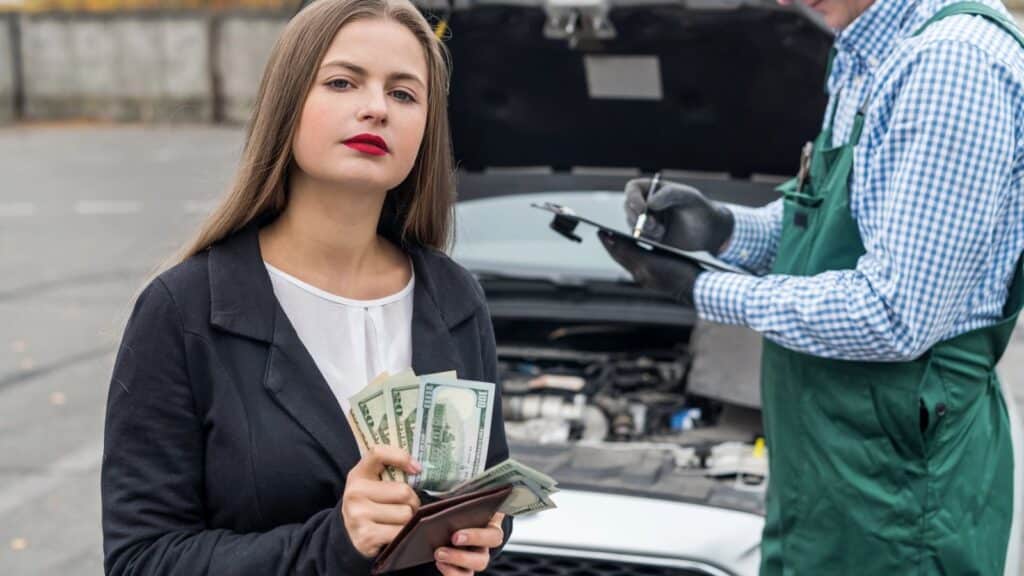Owning a car used to be a big deal—but now, it’s starting to feel like more hassle than it’s worth. Between high prices, insurance, and constant maintenance, some people are looking for ways to live without one. With more options for getting around, car ownership just isn’t the must-have it used to be. Here are nine things pushing people to walk away from it in 2025.
Soaring Insurance Rates

Car insurance premiums have jumped across the country, and many drivers are feeling the pinch. Even those with clean records are seeing higher bills due to rising repair costs, more expensive vehicles, and extreme weather risks. For some, the cost of coverage alone is making car ownership hard to justify.
💸 Take Back Control of Your Finances in 2025 💸
Get Instant Access to our free mini course
5 DAYS TO A BETTER BUDGET
Parking Is a Hassle (and Expensive)

Finding parking in crowded areas has never been fun, but now it’s often costly too. Monthly parking in cities can rival a car payment, and even street parking is harder to come by. With limited space and rising fees, some people are ditching their cars just to avoid the daily parking headache.
Maintenance Costs Keep Climbing

Repairs and upkeep aren’t cheap—especially with newer vehicles that require specialized parts and labor. Whether it’s routine maintenance or a surprise repair, costs are up across the board. For many, the idea of owning something that constantly needs attention and money is becoming less appealing.
Car Prices Are Still High

New and used car prices may have cooled a little, but they’re still far above pre-pandemic levels. For budget-conscious buyers, even basic models feel out of reach. Some are choosing to hold off entirely or explore other transportation options rather than take on large loans or high monthly payments.
Gas Isn’t Getting Cheaper

Fuel prices continue to fluctuate, and even small increases can strain your budget—especially with a long commute or a gas-guzzling vehicle. While electric vehicles offer an alternative, they come with higher upfront costs that not everyone can swing. For many, the cost of staying on the road just doesn’t feel worth it.
Better Public Transit and Local Options

In some cities, expanded public transportation, bike lanes, and walkable neighborhoods are giving people more choices. It’s easier than ever to get around without a car—especially for those who work remotely or don’t have long daily commutes. When getting from point A to point B doesn’t require a vehicle, car ownership becomes optional.
Rise of Car-Sharing and Rentals

Car-sharing services and short-term rentals let people access a vehicle when they need one—without all the upkeep and expenses that come with owning. This flexibility is especially appealing to people who drive occasionally or live in cities. It’s a way to get the benefits of a car without the long-term commitment.
Younger Generations Value Flexibility

Many younger adults don’t see owning a car as a goal the way previous generations did. They’re more focused on experiences, reducing debt, and staying mobile—literally and financially. For them, skipping car ownership means fewer bills, fewer responsibilities, and more freedom to move or travel.
Environmental Concerns Are Growing

More people are thinking about the environmental impact of their daily choices, and cars are a big part of that conversation. Cutting back on driving or skipping car ownership altogether helps reduce emissions. For some, going car-free isn’t just about saving money—it’s about aligning their lifestyle with their values.
Skipping a Car Makes More Sense Than Ever

Owning a car used to be a necessity, but that’s no longer true for everyone. As costs climb and other options improve, more people are realizing that life without a car can be simpler, cheaper, and even less stressful. For many, it’s a change that feels surprisingly freeing.
12 Lifestyle Shifts That Can Save You Thousands Annually

Saving money might feel hard, but small changes add up quickly. Adjusting daily habits can lower costs without giving up what you enjoy. It’s not about going without—it’s about making simple, smart choices that lead to real savings.
Read it Here: 12 Lifestyle Shifts That Can Save You Thousands Annually



